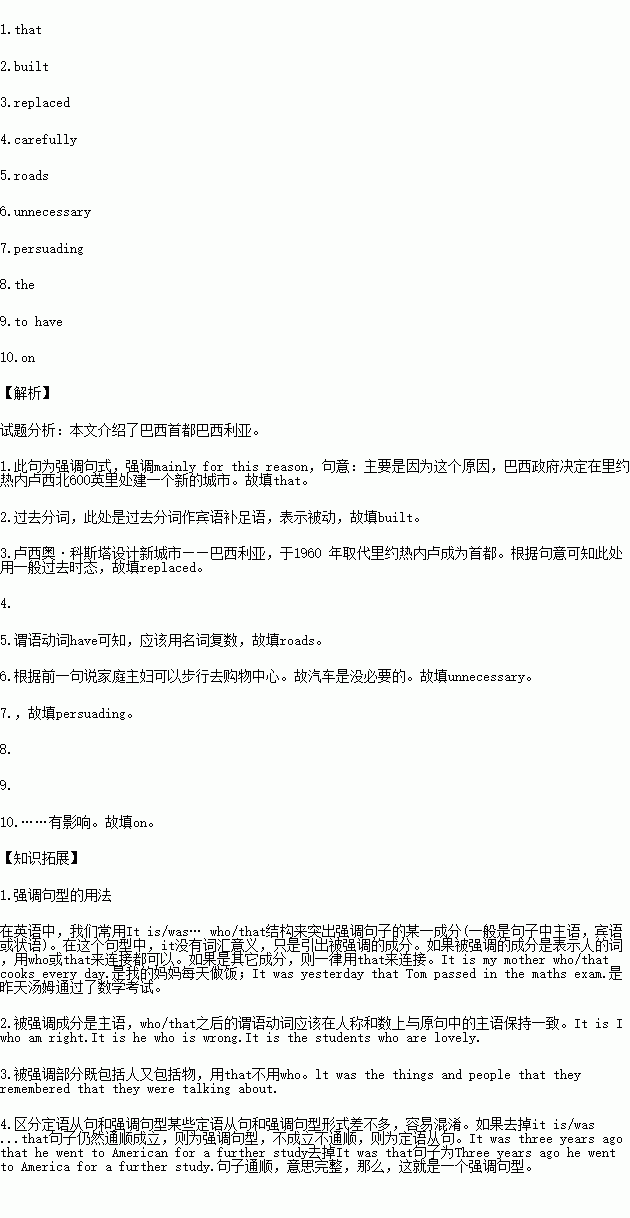题目内容
阅读下面材料,在空白处填入适当的内容(1个单词)或括号内单词的正确形式。
Though Brazil is one of the richest countries in the world, much of it has not yet been developed. It was mainly for this reason 1. the Brazilian government decided to have a new city 2. (build) 600 miles north-west of Rio de Janeiro. Designed by the great architect Lucio Costa, the new city, Brasilia, 3. (replace) Rio de Janeiro as the capital of Brazil in 1960. Brasilia has been 4. (careful) planned for modern living. Its wide___5.__( road), which can take fourteen lanes of traffic, have been kept away from living areas. Children do not have to cross busy streets to go to school. Housewives can visit-shopping centres on foot, for in these specially designed areas, cars are 6. (necessary). At first, the government had great difficulty 7. (persuade) people to leave Rio and to settle in Brasilia. Since 1960, however, the population has been growing all 8. time. Brasilia has quickly established itself as the capital of the country. The idea 9. (have) the capital moved inland will have a great influence 10. the future of Brazil.

